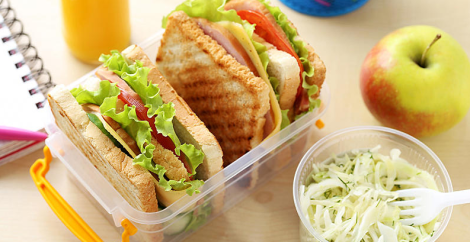Paul Mitalipov
Off-campus lunches – are they a way to teach students responsibility and managing time, or are they just a lawsuit waiting to happen? This is a question that is frequently debated in the halls of Aloha High School. Although many students and teachers at Aloha are very strongly in favor or against off-campus lunches, it’s important to consider both sides of the issue.
The main argument in favor of off-campus lunches is that they teach students responsibility and how to interact with the outside world. High school is supposed to be a time for teenagers to learn the skills that will help them in the adult world. Keeping this in mind, it seems odd that we don’t let them go off campus for lunch, where they can learn important skills like time and money management.
Another argument for off-campus lunches is that they allow students to escape school lunches, which are generally average. In many cases, students will have a wider variety of food to choose from, giving them the freedom to choose a healthy option over the food that the cafeteria offers. To be fair, it’s hard to provide excellent food for 2000 students. Furthermore, allowing students to leave campus for lunch will allow them to be themselves for a bit, and they will return to finish the rest of the day happy and rested.
“I think that most students are responsible enough to not abuse the privilege of off-campus lunches.” said Jack Vanauker, a junior at Aloha.
There are also many solid arguments against off-campus lunches. One such argument is that high schoolers often don’t have the best judgement, and giving them more freedom could put them in dangerous situations. In fact, the frontal lobe of the brain (the part that is in charge of judgement, making plans and other important functions) does not finish developing until a person’s mid 20s, providing a scientific basis for this counterargument. Another reason why students should not be able to go off-campus for lunch is that if they get hurt, the school would be at fault and would be open to a messy lawsuit. It’s understandable why schools wouldn’t want to put their students and themselves at risk for off-campus lunches.
“I think off-campus lunches are bad, because teenagers can’t be trusted.” said junior Alex Alonso.
Currently no schools in the Beaverton School district allow off-campus lunches, but that could change. The pros of off-campus lunches outweigh the cons. I am a firm believer in granting teenagers freedom and responsibility to prepare them for the outside world. However, I also acknowledge the complaints of the opposing side, and I will try to answer them with my plan.
Firstly, students and their parents must sign a release form for off-campus lunches to exempt the district from any responsibility should something go wrong. Second, only students that are performing well in terms of academics (3.0 cumulative GPA, no outstanding unexcused absences or tardies, etc.) may leave the campus for lunches. This will create an incentive for students to take school seriously. If we implement these two ideas, then off-campus lunches will be a net gain for both students and teachers.
